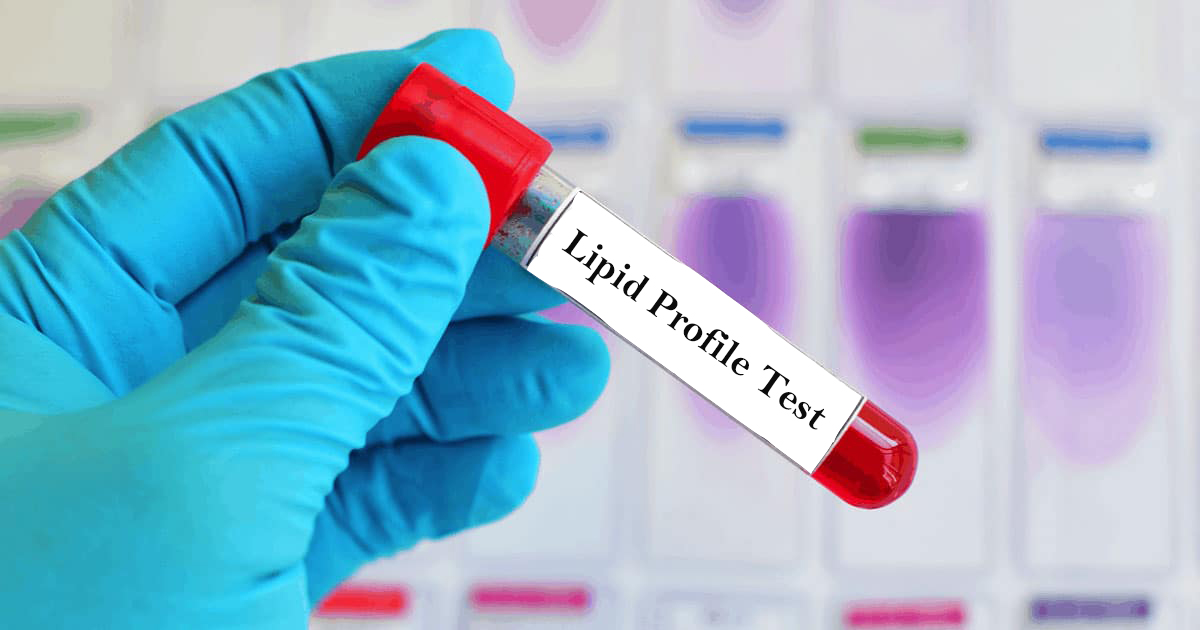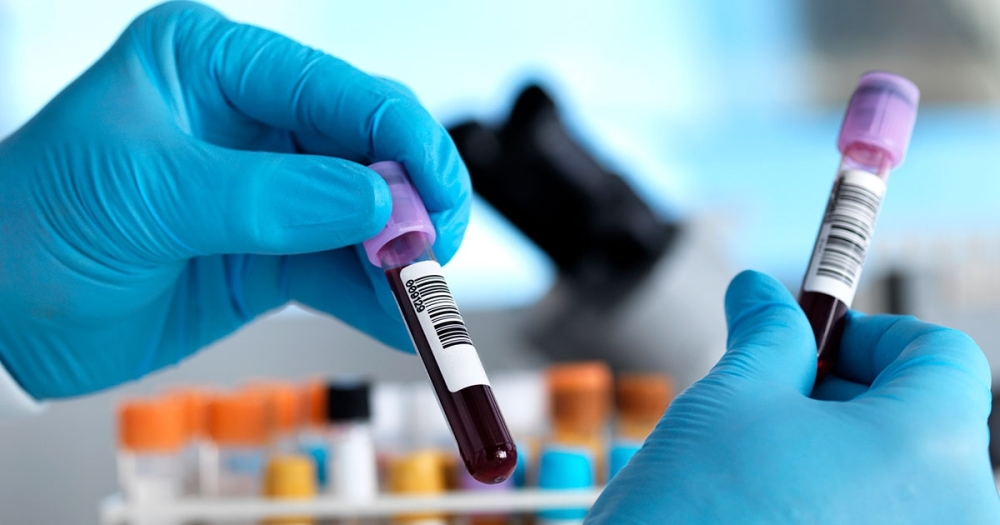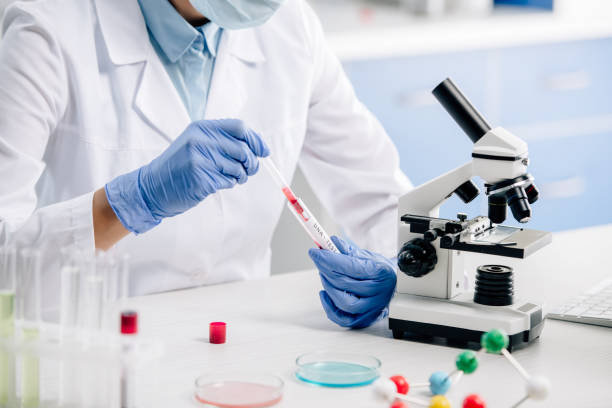People with high cholesterol in their blood might be at risk of cardiovascular diseases like heart attack, heart disease, and stroke. Rising cholesterol and triglyceride levels can cause buildup in your blood vessels and arteries, which are responsible for damage and can increase the risk for cardiovascular problems. Because of this, healthcare providers use lipid profile test in Kothrud Pune to evaluate the risk of such illnesses in pediatrics and adults. The results from the tests help them determine if further action needs to be taken or if lifestyle changes are necessary to reduce risk factors such as high LDL cholesterol that may lead to serious health issues.
Table of Contents
What is a Lipid Panel Test?
A lipid profile test in Kothrud Pune is a blood test used to measure levels of cholesterol and triglycerides in the body. High levels of these lipids can indicate an increased risk for cardiovascular diseases like heart disease, myocardial infarction (heart attack), and stroke. Often the lipid panel contains four separate cholesterol measures and a triglyceride measurement. The test is also commonly named as Lipid test, Coronary risk panel, Cholesterol panel, and Fasting lipid panel or non-fasting lipid panel.
All You Need To Know About Lipid Profile Test… Read More….
What are the 5 types of tests in Lipid Profile?
A lipid profile test, usually known as a cholesterol panel or lipid panel, measures the levels of fats in your blood. It’s an important part of understanding and managing your overall health because it can help detect risk factors for heart disease. The five tests that make up this type of screening are total cholesterol, HDL (high-density lipoprotein), LDL (low-density lipoprotein), triglycerides, and VLDL (very low-density lipoprotein). Let’s get closer to each one:
1. Total Cholesterol: This measures the amount of all types of cholesterol present in your bloodstream. High levels may be linked to increased risk for cardiovascular diseases such as stroke and coronary artery disease.
2. HDL: Another name for HDL is “good” cholesterol, high levels are associated with lower risks, while low levels increase them. Doctors recommend keeping this number above 40 mg/dL if possible.
3. LDL: Often referred to as “bad” cholesterol, higher numbers indicate a greater risk of developing heart problems like atherosclerosis or plaque buildup on arterial walls, which can lead to blockages and other complications. The ideal range should be below 100 mg/dL but no more than 70mg/dL if you have diabetes or hypertension.
4. Triglycerides: These are another form of fat found in our bodies that come from the food we consume; they provide energy when needed by breaking down into fatty acids during the digestion process, so having too much could put us at risk for developing metabolic syndrome which increases chances getting diabetes or stroke later on life. Ideal values should stay between 150–200 milligrams per deciliter (mg/dl), depending on individual circumstances.
5. VLDL: Very Low-Density Lipoproteins carry triglycerides throughout the body just like LDL does; however, their concentration is usually much lower, making them less dangerous than others mentioned before; optimal ranges vary from person to person, but typically anything under 30mg/dl considered safe according to medical experts.
The Top 10 Benefits of Getting a Lipid Profile Test in Kothrud Pune

If you are looking for an easy, convenient, and reliable way to monitor your cholesterol levels, getting a lipid profile test in Kothrud Pune is the perfect solution. This type of testing can be done at many clinics in Kothrud Pune, with results available within minutes. Here are the top ten benefits that come from getting this important health screening:
1. Detects High Cholesterol Levels: The most obvious benefit of having a lipid profile test is that it can detect high levels of bad cholesterol, which could lead to serious heart problems if left untreated. It also helps identify any underlying causes, such as genetics or lifestyle factors, so they can be addressed before further damage occurs.
2. Helps Monitor Existing Conditions: If you already have conditions like diabetes or hypertension, regular tests will help track how well these issues are being managed over time by monitoring changes in your lipid levels.
3. Identifies Risk Factors Early On: By detecting early signs of potential risk factors for cardiovascular diseases, such as elevated triglyceride levels or low HDL-C numbers, doctors can take preventative steps to reduce those risks before more serious complications arise later on down the line.
4. Detects Liver Disease: Abnormalities found during a lipid profile test may indicate liver diseases such as cirrhosis or fatty liver disease which require immediate medical attention and treatment plans tailored specifically towards them.
5. Identifies Nutritional Deficiencies: Low amounts of certain lipids may suggest nutritional deficiencies, allowing physicians to recommend dietary changes accordingly.
6. Helps Track Medication Effectiveness: Regularly checking one’s lipids allows doctors to adjust medications according to dosage strength or frequency depending on their effectiveness against specific conditions like hypercholesterolemia or hypothyroidism.
7. Assesses Response To Diet And Exercise Changes: Monitoring one’s lipids after making diet and exercise modifications gives insight into whether those efforts are paying off, helping individuals stay motivated while achieving desired goals faster than expected.
8. Assists In Diagnosing Metabolic Syndrome: Having three out of five criteria present – increased waist circumference, elevated fasting glucose level, raised triglycerides level, decreased HDL-C number & higher systolic/diastolic blood pressure readings – indicates metabolic syndrome diagnosis requiring additional assessment & management strategies from healthcare professionals immediately.
9. Provides Insight Into Family History Of Heart Disease: Knowing family history regarding heart-related illnesses makes it easier for patients & practitioners alike to determine appropriate preventive care methods based on genetic predisposition information gathered through various lab tests including but not limited to; complete blood count ( CBC ) paneling along with comprehensive metabolic panels ( CMP ) alongside other relevant screenings.
10. Reflect on overall health situation: A lipid profile test in Kothrud Pune is an important tool to assess someone’s overall health status by measuring different fats in their bloodstream. Knowing these results helps doctors determine any potential risks related to cardiovascular diseases early enough to prevent further damage from being done over time.
Conclusion
Getting a lipid profile test in Kothrud Pune provides numerous short-term and long-term advantages, from identifying risk factors earlier on all the way up to assisting with accurately diagnosing metabolic syndromes, thus ensuring better overall patient outcomes regardless of the age group they belong to.
1. What is a lipid profile test and why is it important?
A lipid profile test measures cholesterol and triglyceride levels to check your risk of heart disease, heart attack, and stroke. It helps detect problems early for timely treatment.
2. When should I get a lipid profile test in Kothrud Pune?
You should get a lipid test once a year, or more frequently if you have diabetes, obesity, hypertension, or a family history of heart disease.
3. Do I need to fast before a lipid profile test?
Yes, many clinics recommend 9–12 hours of fasting for accurate results, especially for triglycerides. Some tests can be done non-fasting depending on the doctor’s advice.
4. What does a lipid profile test include?
The test includes Total Cholesterol, HDL, LDL, Triglycerides, and VLDL, which together show your heart health and cardiovascular risk.
5. How can a lipid profile test help prevent heart disease?
It identifies high LDL, low HDL, and elevated triglycerides, helping doctors recommend diet, lifestyle changes, or medication to reduce heart disease risk.
6. Where can I get an accurate lipid profile test in Kothrud Pune?
You can get a reliable and quick lipid profile test at Sunrise Diagnostic Centre in Kothrud Pune, known for its accurate reporting and professional services.
7. How often should people with high cholesterol check their lipid profile?
People with high cholesterol should repeat the test every 3–6 months to monitor improvements and medication effectiveness.
8. Can a lipid profile test detect other health problems?
Yes. Abnormal lipid levels can indicate liver disease, metabolic syndrome, thyroid issues, and nutritional deficiencies, helping in early diagnosis.
For more information kindly visit our website: https://sunrisediagnosis.com/
Call Now: 9028801188, 9028566644, 9028566611
Find the clinic here: Get direction
Address: Ground Floor, Shop No. 2, Business Hub Building Opp. Mirch Masala Hotel, Near Vandevi Mandir Karve Road, Karvenagar, Kothrud, Pune, Maharashtra 411038

Dr. Karishma Shinde, B.H.M.S (MUHS Nashik) PGD, EMS (RHC Pune and the Director of Sunrise diagnostics Centre along with her team works with a vision of rendering care for the happiness of humankind and freedom from illness.




